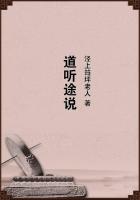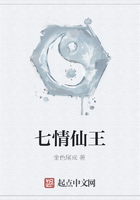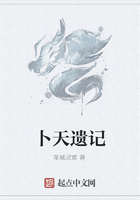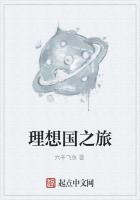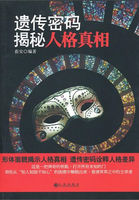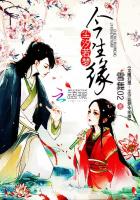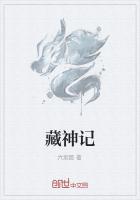[William Winter, the dramatic critic of the New York _Tribune_, in 1894 wrote the "Life and Art of Joseph Jefferson," published by the Macmillan Company, London and New York. He gives an account of Jefferson's lineage, and then says:
"In Joseph Jefferson, fourth of the line, famous as Rip Van Winkle, and destined to be long remembered by that name in dramatic history, there is an obvious union of the salient qualities of his ancestors.
The rustic luxuriance, manly vigour, careless and adventurous disposition of the first Jefferson; the refined intellect, delicate sensibility, dry humour, and gentle tenderness of the second; and the amiable, philosophic, and drifting temperament of the third, reappear in this descendant. But more than any of his ancestors, and more than most of his contemporaries, the present Jefferson is an originator in the art of acting.... Joseph Jefferson is as distinct as Lamb among essayists, or George Darley among lyrical poets. No actor of the past prefigured him, ... and no name, in the teeming annals of modern art, has shone with a more tranquil lustre, or can be more confidently committed to the esteem of posterity."The Autobiography of Joseph Jefferson, copyright, 1889, 1890, by the Century Company, New York, was published 1891. From its chapters, by permission, have been taken these pages.--ED.]
HOW I CAME TO PLAY RIP VAN WINKLE
The hope of entering the race for dramatic fame as an individual and single attraction never came into my head until, in 1858, I acted Asa Trenchard in "Our American Cousin"; but as the curtain descended the first night on that remarkably successful play, visions of large type, foreign countries, and increased remuneration floated before me, and Iresolved to be a star if I could. A resolution to this effect is easily made; its accomplishment is quite another matter.
Art has always been my sweetheart, and I have loved her for herself alone. I had fancied that our affection was mutual, so that when Ifailed as a star, which I certainly did, I thought she had jilted me.
Not so. I wronged her. She only reminded me that I had taken too great a liberty, and that if I expected to win her I must press my suit with more patience. Checked, but undaunted in the resolve, my mind dwelt upon my vision, and I still indulged in day-dreams of the future.
During these delightful reveries it came up before me that in acting Asa Trenchard I had, for the first time in my life on the stage, spoken a pathetic speech; and though I did not look at the audience during the time I was acting--for that is dreadful--I felt that they both laughed and cried. I had before this often made my audience smile, but never until now had I moved them to tears. This to me novel accomplishment was delightful, and in casting about for a new character my mind was ever dwelling on reproducing an effect where humour would be so closely allied to pathos that smiles and tears should mingle with each other. Where could I get one? There had been many written, and as I looked back into the dramatic history of the past a long line of lovely ghosts loomed up before me, passing as in a procession: Job Thornberry, Bob Tyke, Frank Ostland, Zekiel Homespun, and a host of departed heroes "with martial stalk went by my watch."Charming fellows all, but not for me, I felt I could not do them justice. Besides, they were too human. I was looking for a myth--something intangible and impossible. But he would not come.
Time went on, and still with no result, During the summer of 1859 I arranged to board with my family at a queer old Dutch farmhouse in Paradise Valley, at the foot of Pocono Mountain, in Pennsylvania. A ridge of hills covered with tall hemlocks surrounds the vale, and numerous trout-streams wind through the meadows and tumble over the rocks. Stray farms are scattered through the valley, and the few old Dutchmen and their families who till the soil were born upon it; there and only there they have ever lived. The valley harmonised with me and our resources. The scene was wild, the air was fresh, and the board was cheap. What could the light heart and purse of a poor actor ask for more than this?
On one of those long rainy days that always render the country so dull I had climbed to the loft of the barn, and lying upon the hay was reading that delightful book "The Life and Letters of Washington Irving." I had gotten well into the volume, and was much interested in it, when to my surprise I came upon a passage which said that he had seen me at Laura Keene's theater as Goldfinch in Holcroft's comedy of "The Road to Ruin," and that I reminded him of my father "in look, gesture, size, and make." Till then I was not aware that he had ever seen me. I was comparatively obscure, and to find myself remembered and written of by such a man gave me a thrill of pleasure I can never forget. I put down the book, and lay there thinking how proud I was, and ought to be, at the revelation of this compliment. What an incentive to a youngster like me to go on.
And so I thought to myself, "Washington Irving, the author of 'The Sketch-Book,' in which is the quaint story of Rip Van Winkle." Rip Van Winkle! There was to me magic in the sound of the name as Irepeated it. Why, was not this the very character I wanted? An Ameri can story by an American author was surely just the theme suited to an American actor.
In ten minutes I had gone to the house and returned to the barn with "The Sketch-Book." I had not read the story since I was a boy. I was disappointed with it; not as a story, of course, but the tale was purely a narrative. The theme was interesting, but not dramatic. The silver Hudson stretches out before you as you read, the quaint red roofs and queer gables of the old Dutch cottages stand out against the mist upon the mountains; but all this is descriptive. The character of Rip does not speak ten lines. What could be done dramatically with so simple a sketch? How could it he turned into an effective play?


